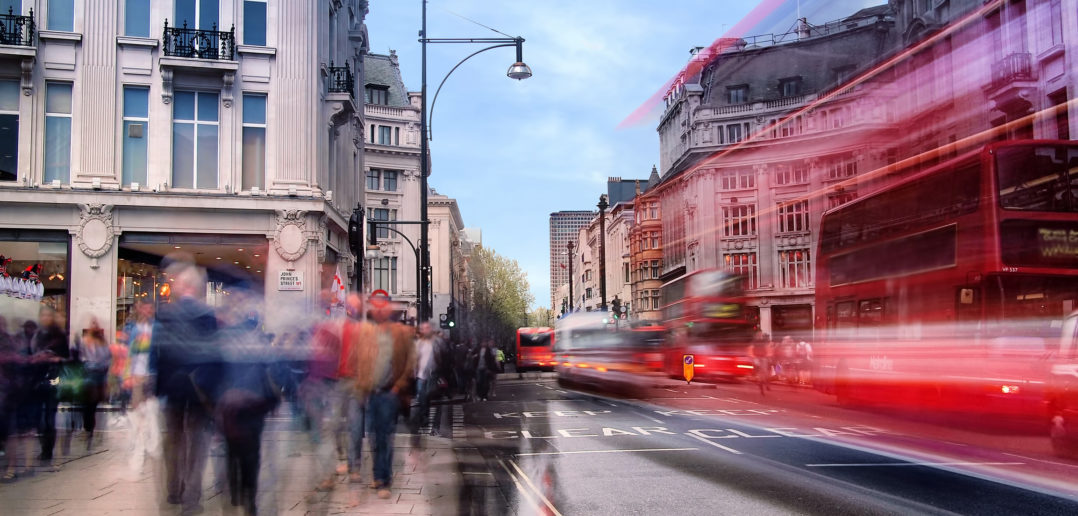The retail industry is often viewed as an indicator of the strength of the economy and consumer confidence. As Brexit nears, how has the UK retail market been affected?
In July, the last month the UK Office for National Statistics has released figures, retail sales increased .3% after falling 1.1% in June. All the growth, however, was in food and household stores; all other segments saw a decrease.
Compared to 2016, sales were 1.3% higher, and online sales spiked 15.1%.
The Office calls this growth quite volatile, and that sales during the first half of the year were subdued.
Let’s look at the state of the UK retail market following the Brexit vote:
- 4%: That’s the percentage of multichannel and ecommerce retailers who feel confident about the future regarding Brexit. An additional 32% believe it will have a negative impact. That’s what a survey of 100 executives by WBR Digital on behalf of RetailMeNot found. Half of the executives are fearful of overseas competition. A whopping 99% said they plan to invest in new technology over the next 12 months even though 57% said they were ignorant of what technology was needed to stay competitive. “The watchword for the next 12 months or so is ‘uncertainty’,” Paul Lewis, senior director of marketing at VoucherCodes, said. Source: Internet Retailing
- American retailers fail to compete: American retailers are the bottom of the heap in the eyes of British customers, according to research by Kantar WorldPanel. This is good news for British retailers as 75% of the clothing and footwear sold in the UK are domestic brands. Of the remaining 25%, only 5% are non-European brands. American companies have focused too much on pricy London locations, meaning American brands aren’t generally known outside the capital. In addition, American retailers have been victims of price conscious British shoppers who have learned to find great deals on imported goods online. Source: CNBC
- “These figures tell a less positive story about the health of consumer spending than it might seem at first glance.” Those are the words of British Retail Consortium CEO Helen Dickinson, warning that August’s strong retail sales aren’t something to celebrate. In August, sales grew 2.4% as parents purchased back-to-school clothing and shoes. Non-food sales have only now returned to their 2015 levels, Dickinson said. She urges the government to establish a tariff-free trade deal with the European Union to ensure the continued availability of affordable, quality products. Source: International Business Times
- Cash a thing of the past?: A surprising 55% of British shoppers believe they will stop using cash to make retail purchase in the next two years, according to research by global payment provider Paysafe. One in six Britons say they never carry cash, and 24% visit an ATM once a month or less. Of the survey participants, 24% already use mobile wallets and 12% use cryptocurrencies for payments. Participants were concerned about security and mobile phone theft. Source: Global Banking & Finance Review
- Shopping is frustrating: That’s what 75% of UK customers say about patronizing brick-and-mortar businesses, according to the Omnico Retail Gap Barometer. Online shopping didn’t fare much better; 71% find it frustrating. These numbers, however, are lower than last year’s barometer. Many of the complaints revolved around convenience and speed. Another common complaint is how retailers interact with customers, including a seamless online and in-store shopping experience. Source: Small Business UK
Photo Credit: Getty Images


![[NEW] MAPIC interview: In conversation with Sostrene Grene CEO Mikkel Grene Sostrene-Grene](https://www.beyondretailindustry.com/wp-content/uploads/2024/03/Inside-Sostrene-Grene-store-5-1-351x185.jpg)
![[NEW] Women in Retail: 24 trailblazers for 2024 Women in retail](https://www.beyondretailindustry.com/wp-content/uploads/2024/03/image-1-351x185.png)
